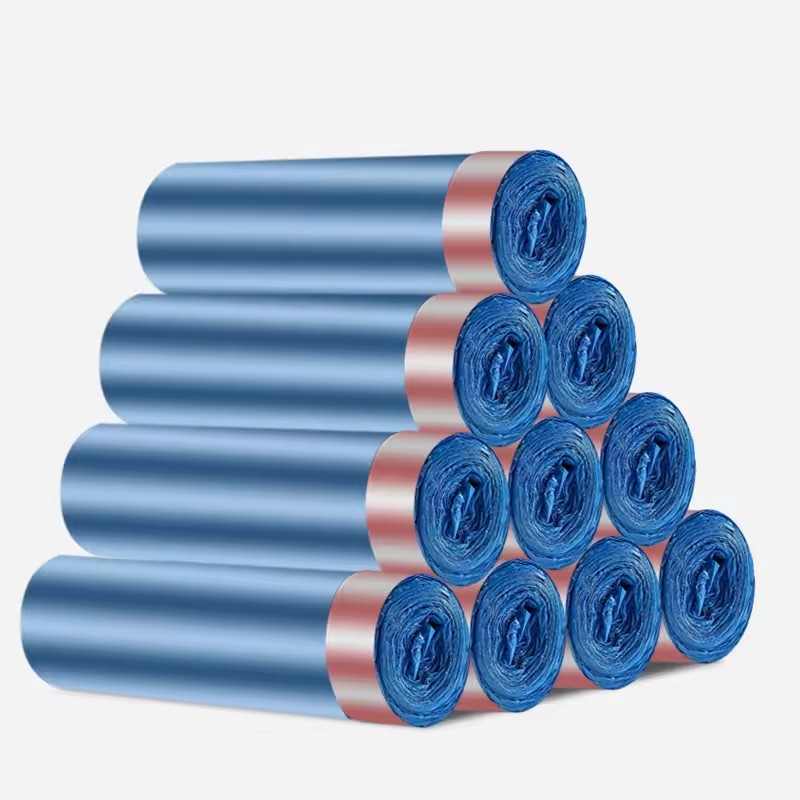How Do Recyclable Trash Bags Help Reduce Landfill Waste?
In recent years, environmental sustainability has become a crucial concern worldwide, prompting innovative solutions to reduce waste and promote recycling. One such innovation is the use of recyclable trash bags, which offer significant benefits in reducing landfill waste. This article explores how recyclable trash bags, biodegradable garbage bags, and related practices contribute to a cleaner environment.
1. The Problem with Traditional Trash Bags
Traditional trash bags are typically made from non-biodegradable plastics that can persist in landfills for hundreds of years. These plastics not only take up valuable space but also release harmful chemicals into the soil and groundwater as they slowly degrade. The sheer volume of plastic waste exacerbates the global waste management crisis, making it imperative to find sustainable alternatives.
2. The Role of Recyclable Trash Bags
Recycling trash bags are designed to be processed along with other recyclable materials, thereby reducing the amount of waste that ends up in landfills. These bags are made from materials that can be reintroduced into the manufacturing cycle, promoting a circular economy. The key benefits include:
Material Recovery: Recycling trash bags are processed in recycling facilities where they are broken down and repurposed. This recovery process reduces the need for virgin materials, conserving natural resources and energy.
Reduced Plastic Waste: By using recyclable materials, these bags decrease the volume of plastic waste that contaminates the environment. They help to mitigate the negative impacts of plastic pollution on wildlife and ecosystems.
Support for Recycling Programs: The use of recycle trash bags encourages participation in recycling programs. Consumers are more likely to segregate their waste properly when they know that their efforts are supported by suitable products.

3. The Impact of Biodegradable Garbage Bags
In addition to recyclable trash bags, biodegradable garbage bags offer another solution for reducing landfill waste. These bags are made from materials that break down naturally in the environment, such as cornstarch, vegetable oils, and other organic substances. The advantages of biodegradable garbage bags include:
Faster Decomposition: Unlike traditional plastics, biodegradable bags decompose much faster when exposed to environmental conditions such as moisture and microorganisms. This reduces the long-term environmental footprint of waste.
Less Harmful Residues: As they decompose, biodegradable bags leave behind minimal harmful residues, mitigating soil and water pollution. This makes them a safer option for waste management.
Complementing Organic Waste Management: Biodegradable bags are particularly useful for collecting organic waste, which can be composted. Using these bags helps ensure that composting processes are free from plastic contamination, resulting in higher quality compost.
The combined use of recyclable and biodegradable trash bags offers a comprehensive approach to waste management. By choosing the appropriate type of bag for different kinds of waste, individuals and communities can optimize recycling and decomposition processes. For instance, recyclable bags are ideal for dry, recyclable materials, while biodegradable bags are best suited for organic waste.

4. Consumer Responsibility and Education
The success of recyclable and biodegradable trash bags in reducing landfill waste depends largely on consumer awareness and participation. Education campaigns that inform the public about proper waste segregation, the benefits of using eco-friendly products, and the correct disposal methods are essential. Consumers need to understand how their choices impact the environment and be motivated to adopt sustainable practices.

Recyclable trash bags and biodegradable garbage bags are pivotal in the fight against landfill waste. They represent a shift towards more sustainable waste management practices, helping to reduce environmental pollution and conserve resources. By integrating these solutions into daily life and supporting recycling initiatives, we can make significant strides toward a cleaner, more sustainable future. The adoption of recyclable and biodegradable trash bags is not just a personal choice but a crucial step in protecting our planet for future generations.






